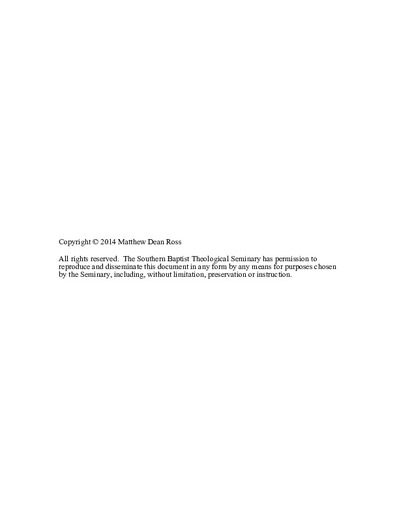The Trinitarian Foundation of Leadership: Working Together for God's Glory in Unity and Diversity
Abstract
In the last decade, the theory of shared leadership has received considerable attention. This theory shifts the primary focal point of leadership discussions from vertical to lateral forms of influence. Moreover, it has been recognized that the shared leadership environment requires a unique understanding of identity. Working in teams that allow for lateral forms of influence requires that members have both a bounded and open understanding of identity.
This research examines the association between trinitarian thinking and the understanding of personal identity in the context of positions of lateral influence. In particular the doctrines of the image of God, union with Christ, and covenant are examined from a trinitarian perspective. Because the doctrine of Trinity emphasizes that the one God eternally exists as three persons, trinitarian thinking requires that both universals and particulars be held together in an equiprimal relationship. Each of these doctrines is examined in order to highlight the significance of this equiprimal relationship in understanding personal identity.
In the concluding chapters of this research, a model of leadership is proposed that values both the bounded and open aspects of personal identity. This model encourages the development of ethical lateral influence through love, dialogue, and a covenantal understanding of authority. These three aspects of ethical lateral influence are then applied to the workgroup setting through the development of a particular organizational culture. In order for a culture that values love, dialogue, and covenantal relationships to develop, organizations must build observable patterns of teamwork, diversification, and coaching.

